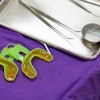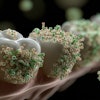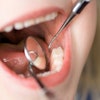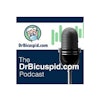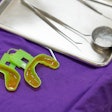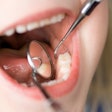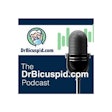Preschoolers may face an increased risk of tooth decay from certain factors, including extended breastfeeding, which was linked to more than double the odds of having early childhood caries (ECC), according to a study published in BMC Pediatrics.
Also, parents’ irregular toothbrushing habits and maternal smoking may affect early caries development, the authors wrote.
“Irregular parental brushing, extended breastfeeding, and parental smoking habits were found to be associated with increased odds for ECC in 4-year-old children,” wrote the authors, led by Yuichiro Miura of the Tohoku University Graduate School of Medicine in Japan (BMC Pediatr, August 8, 2025, Vol. 25, 613).
The cross-sectional study used data from the Japan Environment and Children’s Study, conducted between January 2011 and March 2014, which included 74,310 cases of expectant mothers. Questionnaires were regularly administered, and data related to ECC and potential risk factors were drawn from datasets released in October 2019 and April 2021, the wrote.
Information on ECC presence, oral hygiene habits, breastfeeding, and child growth was collected from caregiver questionnaires when children were 4 years old. Additional details on parental smoking and gestational weeks at birth were gathered from pregnancy questionnaires and medical record transcripts.
The odds of ECC were 0.28 in children who always received caregiver assistance with toothbrushing, 0.40 in those who occasionally received assistance, and 0.38 in those who never received assistance.
Logistic regression showed that occasional parental brushing significantly increased the adjusted odds ratio (aOR) for ECC (aOR 1.33; 95% confidence interval [CI], 1.27 to 1.39), while no assistance was not significantly associated (aOR 1.12; 95% CI, 0.91 to 1.37), they wrote.
Extended breastfeeding was linked to a higher risk of ECC (aOR 2.07; 95% CI, 1.86 to 2.29). Maternal smoking (aOR 1.42; 95% CI, 1.3 to 1.55) and paternal smoking (aOR 1.25; 95% CI, 1.2 to 1.31) also showed significant associations with ECC. Even mothers who quit smoking before childbirth had children with a slightly higher ECC risk compared to those with no smoking history (aOR 1.1; 95% CI, 1.06 to 1.14).
However, the study had limitations. The caregiver questionnaires lacked formal dentist assessments, so the study could not measure key indicators of ECC, the authors added.
“The prevention of dental caries is an important issue that must be addressed,” they wrote.

